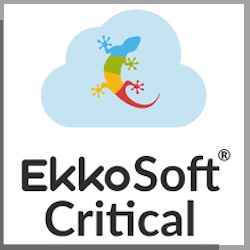Liebherr, a major construction equipment manufacturer, has hired Alexandra Hobgood (pictured above) as general manager of corporate responsibility and sustainability.
Here are four things to know about Hobgood's executive experience, as well as Liebherr's sustainability focus.
1. Business Scope and Scale: Liebherr Group, founded in 1949, is based in Bulle, Switzerland. The family-run company employs nearly 53,000 people worldwide. Revenue was roughly €14 billion (roughly $15.22 billion). Key rivals include Caterpillar, Komatsu, Volvo and Hitachi.
Liebherr Group often describes how its products are increasingly sustainable, but we don't know if the company has set carbon emission goals or a net zero target for its business.
2. Alexandra Hobgood's Role: As GM of corporate responsibility and sustainability, Hobgood will oversee sustainability initiatives throughout Liebherr’s U.S. locations by "educating stakeholders, implementing new processes, and providing additional structure to current programs."
Potential initiatives may include redirecting waste streams, diverting organics to composting, and completing energy studies, the company said.
3. Hobgood's Experence: Hobgood previously was water quality lab manager at the Virginia Aquarium & Marine Science Center. Earlier, she was a laboratory specialist at HRSD, a wastewater treatmen firm. Hobgood earned a bachelor’s degree in biology and a master’s degree in environmental science from Christopher Newport University.
4. Key Perspectives: In a prepared statement about joining the company, Hobgood said: “There are a lot of great processes already being implemented at Liebherr, so the structure for building a strong program is already in motion. I am excited to add in my own intent, heart, and passion to help excel the [sustainability] program."
GM of Corporate Responsibility and Sustainability: Why Technology Partners Should Care
By 2027, 25% of Global 2000 companies will have assigned a chief sustainability officer (CSO) responsible for meeting their organization’s ESG goals and making ESG-related IT purchasing decisions, according to IDC. The figure will certainly be even higher for major cities and municipalities -- many of which are working overtime to align sustainability goals with climate and environmental initiatives.
The bottom line: Technology partners need to extend their sales, marketing, engagement and support strategies to successfully fulfill those CSO customer needs, Sustainable Tech Partner believes.





